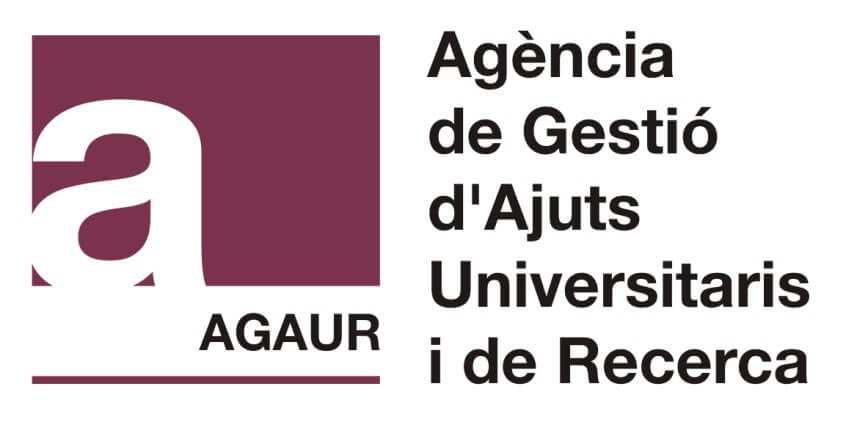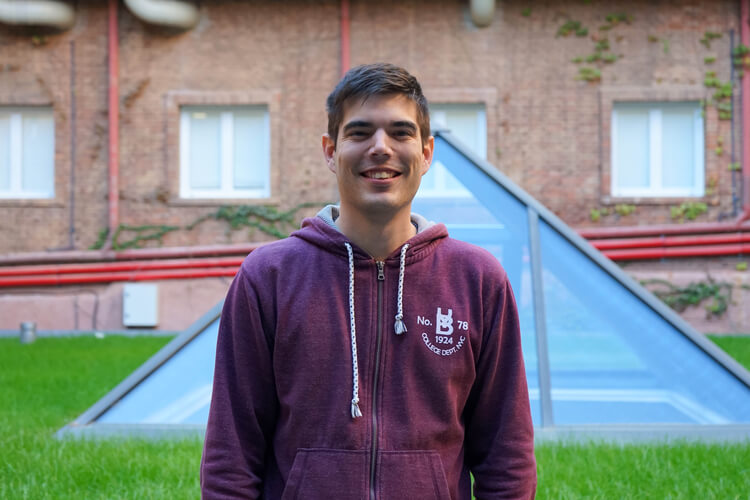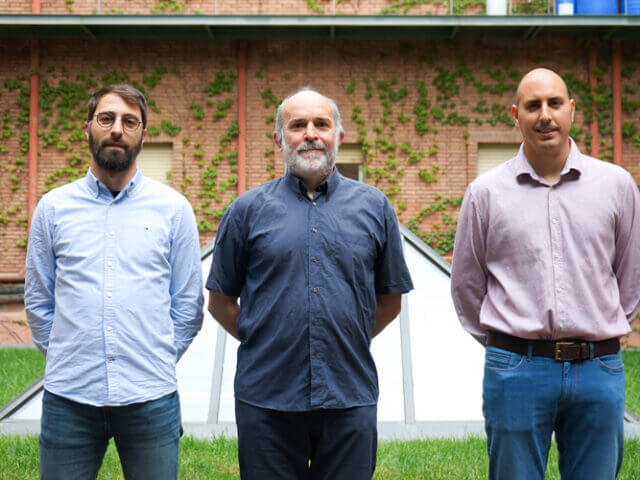Methodology for Non-targeted Analysis in Metabolomic Studies
Dr Marc Marín has recently joined the Environmental Process Engineering and Simulation Group (GESPA) at IQS as a postdoctoral researcher. He will form part of the group coordinated by Dr Cristian Gómez that is leading metabolomic studies in aquatic organisms and evaluating the presence of persistent and emerging pollutants in environmental samples by using advanced chromatographic and mass spectrometry techniques. Dr Marín has earned one of the prestigious grants awarded within the call for grants by the Government of Catalonia Investigo Programme, the first within the field in Catalonia. The Research Programme aims to award grants for the recruitment of young people to develop and carry out duties, tasks, and research and innovation initiatives.
Dr Marc Marín’s project addresses the establishment and application of a non-directed analysis methodology in two model organisms (zebrafish and Daphnia magna) exposed to neurotoxic pollutants, and evaluates the therapeutic effect of certain treatments on the syndromes produced in these exposures, all within the framework of the project.
We recently spoke with Dr Marc Marín and his supervisor, Dr Cristian Gómez, about his project, the grant he earned, and his postdoctoral experience at IQS.
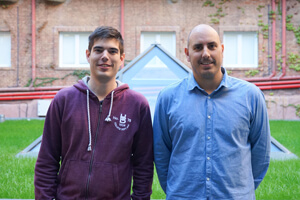
I studied at the University of Barcelona, where I earned both bachelor’s and master’s degrees in Analytical Chemistry, as well as my doctorate, in which I specialized in the analysis of persistent pollutants and metabolites using chemometric techniques. I was lucky enough to be able to work with Dr Romà Tauler at the Institute of Environmental Diagnosis and Water Studies IDAEA/CSIC, within his group specializing in data processing, but less on the analytical techniques themselves. At the end of my thesis, the Covid-19 pandemic came along and I had to extend it and ended up finding myself unemployed. Then came the call for Investigo grants with Next Generation funds, with spots for researchers holding doctorates, under 30 years of age, and unemployed, as was my case.
Then you came to IQS. What attracted you to this school?
I saw the offer from Dr Cristian Gómez, who was also a CSIC researcher and knew Dr Tauler, so I applied and got one of the Investigo grants for postdoctoral positions. I was very attracted to IQS due to being able to join such an expert team in chromatographic techniques, an advancement in my education that I think I needed.
Cristian. The position was opened at many schools but, since I already had a great relationship with the IDAEA group, we saw that Marc met all the requirements to fill this postdoc position. And here he is!
What is the focus of your project?
My project falls within a multidisciplinary project, NeuroTICs, to analyse neurotoxic pollutants used in terrorist weapons and studies the metabolic changes that these chemical residues entail in aquatic and terrestrial organisms. As Chemometrics is my area of expertise – a discipline that addresses the mathematical and statistical analysis of chemical data – my goal is to establish a methodology of non-targeted analysis in the treatment of all data – big data – derived from the metabolic studies carried out in the project.
And what do these non-targeted analyses consist of?
This group at IQS has been working for about two years on projects related to ohmics, such as the NeuroTICs project, in which this type of non-targeted analysis is being greatly enhanced, consisting of a “screening” of all the metabolites that can be found when analysing the brain of a zebrafish or a mouse, for example. These analyses are done with high-resolution analytical techniques – such as the equipment installed in the IQS-SCIEX Demo lab – but generate a lot of data that must be processed.
And this is where my knowledge of Chemometrics comes in. Since there are millions of signals in the mass spectra of these samples, we have developed an SOP on the analysis of this type of data and have created a method to filter and evaluate all this information.
“We have developed a procedure to analyse the large amount of information from the analysis of ohmic studies”
In fact, during my first year here, I have started working on this methodology with the calculations and data processing of another pilot study that was carried out within the GESPA group on the analysis of per- and polyfluoroalkylated substances (PFAS), compounds that are widely used industrially for their properties and characteristics, but some of which have the particularity of being very toxic and represent a serious environmental risk. The study dealt with the accumulation of these PFAS in certain Mediterranean fish and seafood.
Now that we have the data processing methodology ready, we will apply it to the study of the results of neurotoxic samples, derived from the final phase of the NeuroTICS project, obtained in models of living beings – Daphnia, zebrafish, and mice. The non-targeted analysis methodology will be applied both to the presence of neurotoxicants and the changes produced in the metabolisms, as well as to the effects of the antidotes developed to counteract their effects on living beings.
“The methodology will be applied to the presence of neurotoxicants and metabolic changes, as well as to the effects of the developed antidotes”
What has this grant meant for you?
First of all, it has given me the opportunity to rejoin the world of research, and I am very grateful for that. When I finished my doctorate, I was wrapping up another stage, and this grant has opened up the doors of a place like IQS to me, where I can continue with my research career and delve into advanced analytical techniques, something I needed to perfect.
“The Investigo grant has opened up the doors of a place like IQS to me, where I can delve into advanced analytical techniques”
I will address the issue of processing these large amounts of data, but I also want to get involved in knowing how they have been obtained, what variations have been carried out to obtain the correct ones, and more. In short, I want to understand the history of the samples and, at the same time, delve into areas that I didn’t work on much during my thesis, such as using chromatography equipment coupled with mass spectrometry in the user field. Here at IQS, I have the opportunity to use triple quadrupole, QTOF, and QTRAP equipment, like the ones in the IQS-Sciex Demo lab, and that’s very enriching.
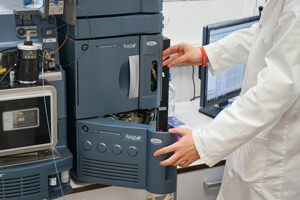
It has been great since, on the one hand, I have been lucky enough to start working in the new facilities of the Chromatography Section, which are fantastic, and also with a very disciplined and welcoming work team, with whom I am learning a lot. I’m having a great time here!
And what’s the supervisor opinion?
Cristian. Well, I am quite pleased about Marc joining our group. His contribution of chemometric knowledge has been a very valuable asset to our group as it is an aspect that we had to reinforce to enhance this line of research on non-targeted analysis. As a researcher, Marc is a person who is always willing to help in the laboratory and who is also eager to learn. I think him joining our group has been a great success. Over the remainder of this year, we have to try to give visibility to all the research we are doing in the group through scientific publications in international journals.
I would also like to add, in reference to publications and as a result of Marc’s first year in our group, that we have managed to publish the results of the PFAS substance analysis methodology in the prestigious journal Environmental Research. This is a source of great satisfaction for everyone!
Publication:
Marc Marín-Garcia, Céline Fábregas, Carla Argenté, Jordi Diaz-Ferrero, Cristian Gómez-Canela, Accumulation and dietary risks of perfluoroalkyl substances in fish and shellfish: a market-based study in Barcelona, Environmental Research, 237, 2023, 117009.
The Investigo grant programme is funded by the European Union, Next Generation EU.
RELATED PEOPLE:
RESEARCH GROUP
Engineering and Simulation of Environmental Processes Group
RELATED PROJECTS
INVESTIGO GESPA 100045ID16
